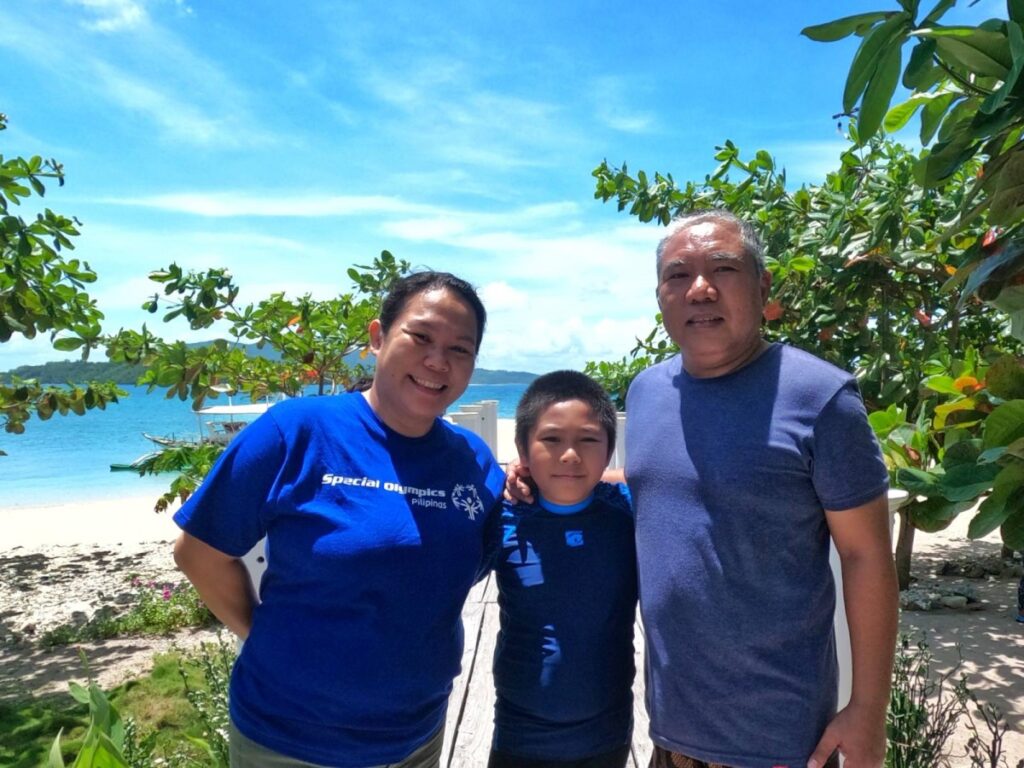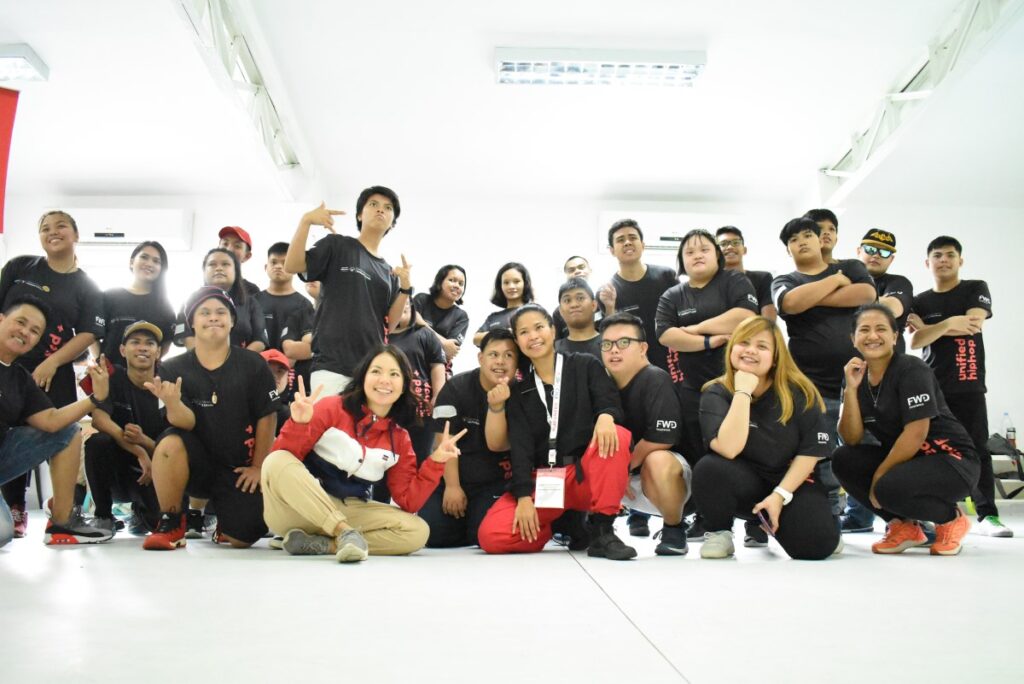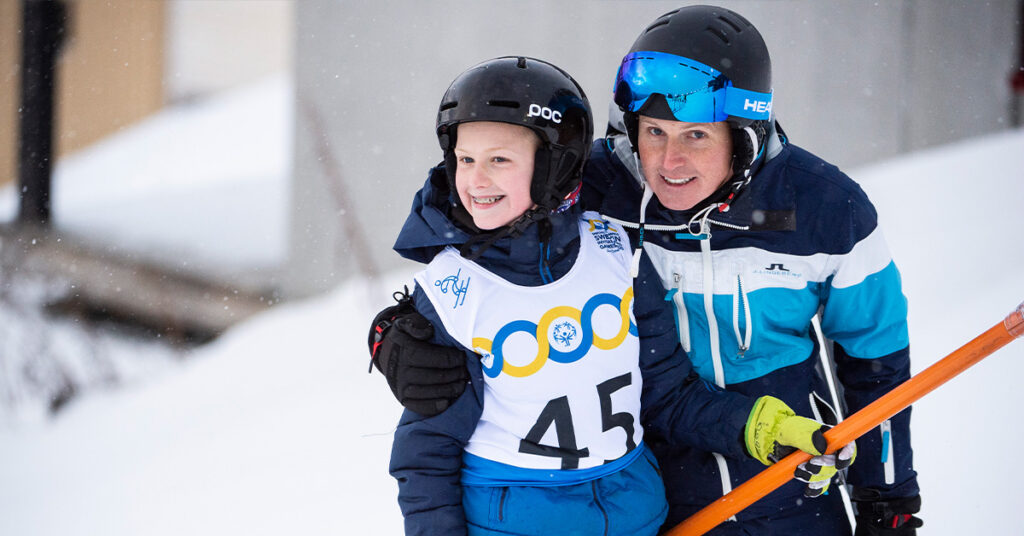Parents share the triumphs of raising children who are making their marks as athletes with intellectual disabilities
Choosing to be a parent takes courage; it is a life-long responsibility bound to change your life in very permanent ways. No longer are you simply thinking of yourself. As a parent, it’s imperative for you to mold another human being to their fullest potential.
However challenging, parenthood offers the most fulfilling reward. When you see your child excited and eager to hone a passion, and when they experience success for the first time, you realize that the hardships have been worth it.
Particularly for parents of children with intellectual disabilities, every day holds different sets of challenges—but it also comes with even more incredible wins. What is it like to raise a child with intellectual disabilities? In this article, we highlight some proud, hard-working parents working alongside Special Olympics Pilipinas to help make a difference in their children’s lives.
A Mother’s Ultimate Motivation

When her son was diagnosed with autism, the news came as a total shock to Joan Iven Jamora-Abello, who never expected to parent a child with disabilities. “I grieved for a long time,” she recounted in a personal essay in Human Race.
“I was crying so much. I would wake up in the middle of the night in tears. My husband tried his best to help me accept the fact, but it was hard.”
In spite of the circumstance, she believes that fate works in mysterious ways. Joan decided to leave the corporate world after 13 long, successful years. To cope with her situation and to better understand her son Akim, she pursued a master’s degree in special education, for which she pursued a thesis that focused on Akim’s condition.
As part of the thesis, Joan got in touch with Kids Nook Integrated School, a school for children with and without disabilities. She later enrolled Akim at Nook, where he started behavioral therapy and special education classes.
Through Kids Nook, Joan also learned about the Special Olympics Young Athletes Program, a sport and play program that helps improve motor and cognitive skills for children ages 2 to 7. She had Akim join the program at 4 years old. His participation helped manage his concentration, balance, and coordination.
Afterwards, he received another diagnosis: Attention Deficit Hyperactivity Disorder. Raising a child with intellectual disabilities did not come easy for Joan, who describes the experience as “a test of our faith.”
“We’ve put up with unkind remarks in church, in grocery stores, in restaurants. People stare. They point and whisper.” Recalling a hurtful encounter with someone who did not understand her and her child’s situation, she pondered: “Why were people so cruel?”
But after years of perseverance and the commitment to the Special Olympics program, Joan was rewarded with a joyous moment. Akim did what was once thought impossible for him. He swam an entire lap. He learned how to swim the breaststroke and the front crawl in time.
Today, Joan continues to support Akim in his pursuit of fulfillment, this time through artistic means. Joan’s experiences have made her more robust, driven to educate not only her family but also the world about the reality of intellectual disabilities. “If everyone can have a ‘person-first’ mindset, the world will be a better place,” she said in her essay.
“Children are gifts. Typical or atypical, we must give them the opportunity to spread their wings.”
A Family That Gives Back, But Never Gives Up
Akiko Thomson-Guevara first made a name for herself in competitive swimming. She is considered as the most accomplished Filipina swimmer in the Southeast Asian Games, having won eight gold medals in the biennial multi-sport meet and completed in three editions of the Summer Olympic Games in the ‘90s. After her retirement from the sport, she built a career in broadcast journalism as a host in national television. Today, she serves as the current president of the Philippine Olympians Association.
With all these accolades under her belt, it’s safe to say that Akiko has a lot to be proud of, but nothing compares to her being a mother to three children—all “wildly affectionate and athletic kids” as she describes them in a personal essay she wrote for Human Race.
The boys, 10-year-old Noah and 8-year-old Elijah, are passionate about soccer. It is her youngest and only daughter, 4-year-old Amelia Sachiko, who has taken from her same interest in swimming. “She is a fish just like her mama—she can be in the water for hours!” Akiko jested.
In the same essay, she recounted giving birth to Sachiko, who was later diagnosed with Down syndrome. “[She] came into our lives different from her brothers.”
“She was my first Caesarean birth,” she wrote. “While I would normally request to walk to my birthing room, with Sachiko I welcomed the wheelchair as I prayed to calm my anxious heart and trembling legs. Perhaps subconsciously I knew this was going to be a special child, even at birth.”
Despite the lingering feeling that there was something different about her youngest child, it still came as a shock to the couple when they first found out about Sachiko having Down syndrome.
She wrote, “It was hard and scary because we had no idea we were going to have a child with Down Syndrome. We cried a lot in the beginning, and the tears came from a place of fear of the unknown. We didn’t know what Down Syndrome meant, or what the implications were. We were caught off-guard, but we also knew in hindsight that God had been preparing us for this journey.”
Five years later, Akiko describes her daughter as “God’s perfect gift to us.” Amid COVID-19, Sachiko has served as a “collective household therapy” for the family, bringing so much healing just by her presence,” as Akiko describes. “She gives her affection so freely, innocently, and lovingly.”
As a mother of a child with intellectual disabilities, it has become all too common for Akiko to encounter queries about the challenges she faces raising Sachiko, to which she always responds that it’s not as scary as people often imagine it to be.
“I don’t know what the future has in store for her, but I am determined to expose her to the same opportunities as her brothers are,” she said. “Raising each child is an adventure, typical or atypical. You mustn’t compare, and you will appreciate every milestone that much more.”
Since having a child with Down syndrome, Akiko and her husband have sought opportunities to give back to the community and work towards helping children with special needs. Today, she also serves as the Board Chair of Special Olympics Pilipinas.
“As a former competitive swimmer and Olympian, sports has impacted my life tremendously,” she wrote.
“I want to see more athletes with intellectual disabilities pursuing their dreams in sports and beyond, alongside their typical friends. I want to see teams, schools, organizations and companies welcoming all abilities, suspending whatever preconceived notions they might have, to treat others the way they would want to be treated.”
Changing the world, one family at a time

These families are some of the people whose lives have been touched by the Special Olympics Pilipinas movement. Their stories are testaments to the fact that if you invest in bringing out the best in your children with intellectual disabilities, you bring out their truest potential. Sports can help children build character and unleash the best versions of themselves.
Know more about Special Olympics Pilipinas and how you can get involved here.

